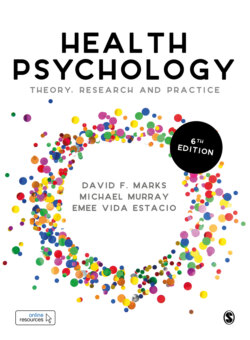Читать книгу Health Psychology - Michael Murray - Страница 89
На сайте Литреса книга снята с продажи.
Biomedicine
ОглавлениеTwo streams of thought in knowing the world dominated during the Enlightenment. The first was the acceptance of the distinction between superstition and reason. The second was the emergence of positivism, which emphasized that science based upon direct observation, measurement and experimentation gave direct access to the real world. This approach concentrated attention on material reality and a conception of the body as distinct from the mind. A central figure was Descartes (1596–1650), who conceived the human being as composed of mind and body. The former was not open to scientific investigation, whereas the latter could be conceived as a machine.
The eighteenth century saw the rise of individualism in Western society. In previous eras the group or collective organized ways of thinking and acting, which in turn was interconnected with the physical and spiritual world. Professional understanding of health and illness became more closely entwined with knowledge of the individual physical body. Foucault (1976) described how between the mid-eighteenth and mid-nineteenth centuries the ‘medical gaze’ came to focus on the interior of the human body. The symptoms of illness now became signs of underlying pathophysiology. Foucault noted that the change in perspective of the physician was illustrated in the change in the patient query from ‘How do you feel?’ to ‘Where does it hurt?’. For this new physician the stethoscope became the symbol of having insight into the bodily interior. Treatment centred on changing the character of this physiology by either medical or surgical means.
This approach to the study of health and illness has become known as biomedicine, or ‘cosmopolitan’ or ‘allopathic’ medicine (Leslie, 1976). It came to dominance for several reasons, including the fact that it was in accord with a broader view of humans, its alliance with physical science and the steady improvement in the health of the population that was attributed to medical intervention. The focus on the body is in accord with the Western emphasis on the individual. Further, the separation of mind and body ‘offers a subtle articulation of the person’s alienation from the body in Western society, but this alienation is found, as well, in every sphere of economic and political life’ (Benoist and Cathebras, 1993: 858). Biomedicine separates the person from the body.
